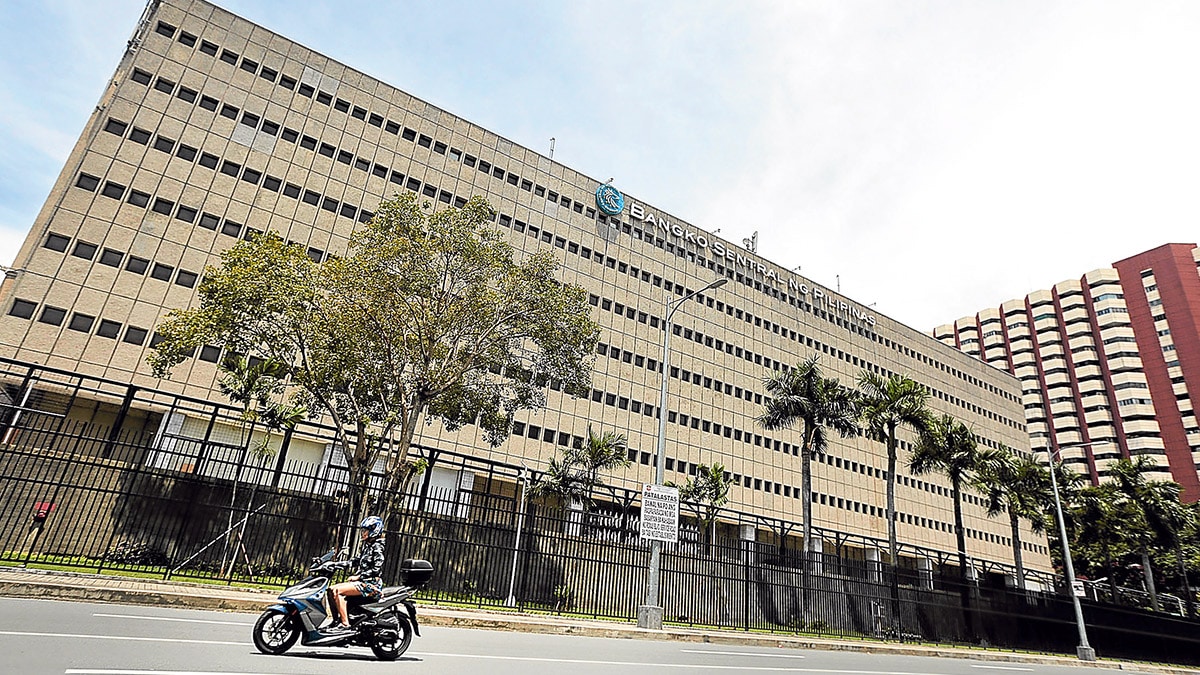The Bangko Sentral ng Pilipinas (BSP) might have to do more to support the Philippine economy if former US President Donald Trump returns to power and starts a global trade war, which can hurt the entire world and, in turn, dim local growth prospects.
Miguel Chanco, chief emerging Asia economist at Pantheon Macroeconomics, said the BSP might have to step up its easing—possibly beyond the 4.5 percent terminal rate that Governor Eli Remolona Jr. currently sees—to shore up the domestic economy from potential risks that another Trump presidency might bring.
“It’s really hard to say at this point both a) who will win the US presidential election and b) what a Trump presidency would mean for the global economy if he does win,” Chanco said in an interview.
“Should Trump win and if he goes forward with imposing a universal tariff on all foreign goods, the likely hit to world trade—and thereby growth—is arguably a reason for why the BSP might want to pick up the pace of easing and/or go for a longer easing cycle,” he added.
As it is, the uncertainties over the Nov. 5 US presidential election are causing anxiety all over the world, and the Philippine peso is already feeling it.
The local currency finished the previous week past the 58-level, a territory not seen in nearly three months as the election jitters powered up a rallying dollar, which is already getting a boost from expectations of slower rate cuts by the US Federal Reserve.
Analysts said the market might have already priced in the possibility of another Trump presidency as the former US leader takes a narrow lead in the latest surveys over his democratic rival, Vice President Kamala Harris. The European Union is already planning to retaliate if Trump gets re-elected and slaps a universal tariff of up to 20 percent on all imports into the US, as he warned.
“A victory for Donald Trump in the US election would probably result in higher US Treasury yields and a stronger dollar,” Capital Economics said in a commentary. “In much of Asia, where inflation is low and external vulnerabilities small, there would be a smaller impact on central banks’ thinking.”
More easing
This month, the BSP cut the policy interest rate by a quarter point again to 6 percent, with Governor Eli Remolona Jr. dropping clear hints of additional—but “measured”—easing moves until the key rate falls to 4.5 percent by the end of 2025.
What gave the Philippines enough room to further slash its policy rate was a softening inflation that had retreated to a four-year low of 1.9 percent in September. And with inflation now sitting comfortably within its target range, the BSP is now at a point where it has to relax monetary conditions amid expectations that the economy may grow below target this year.
Remolona said a 25-basis-point (bp) cut at the Dec. 19 meeting of the Monetary Board was “possible.” But he said an outsized half-point reduction was “unlikely” to happen. Overall, the BSP chief did not rule out the possibility of additional cuts cumulatively worth 100 bps in 2025.
